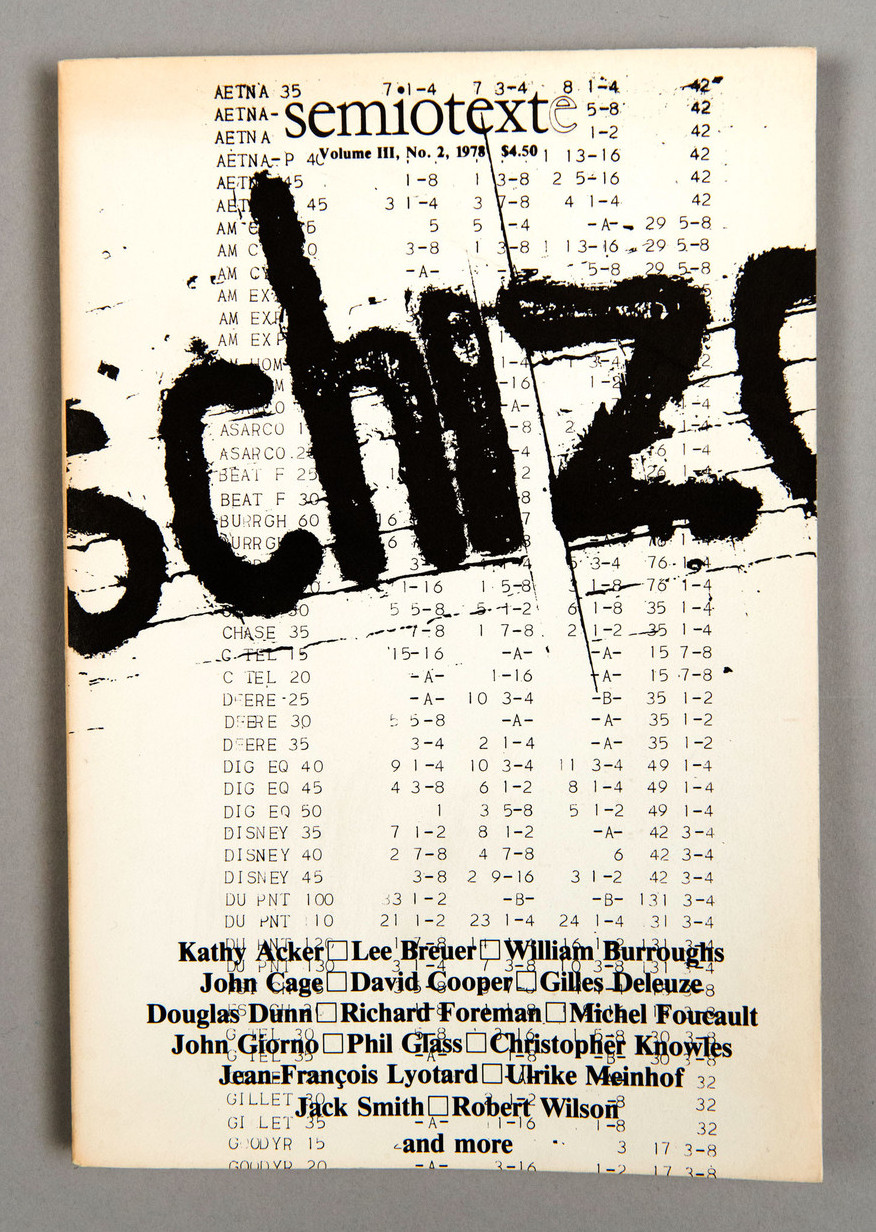Eugene W. Holland: Nomad Citizenship: Free-Market Communism and the Slow-Motion General Strike (2011)
Filed under book | Tags: · capitalism, citizenship, communism, deterritorialization, labour, market, nomadology, politics, schizoanalysis, value

Nomad Citizenship argues for transforming our institutions and practices of citizenship and markets in order to release society from dependence on the state and capital. It changes Deleuze and Guattari’s concept of nomadology into a utopian project with immediate practical implications, developing ideas of a nonlinear Marxism and of the slow-motion general strike.
Responding to the challenge of creating philosophical concepts with concrete applications, Eugene W. Holland looks outside the state to analyze contemporary political and economic development using the ideas of nomad citizenship and free-market communism. Holland’s nomadology seeks to displace capital-controlled free markets with truly free markets. Its goal is to rescue market exchange, not perpetuate capitalism—to enable noncapitalist markets to coordinate socialized production on a global scale and, with an eye to the common good, to liberate them from capitalist control.
In suggesting the slow-motion general strike, Holland aims to transform citizenship: to renew, enrich, and invigorate it by supplanting the monopoly of state citizenship with plural nomad citizenships. In the process, he offers critiques of both the Clinton and Bush regimes in the broader context of critiques of the social contract, the labor contract, and the form of the state itself.
Publisher University of Minnesota Press, 2011
ISBN 0816666121, 9780816666126
344 pages
review (Benjamin Noys, review31)
Comment (0)David Norman Rodowick (ed.): Afterimages of Gilles Deleuze’s Film Philosophy (2010)
Filed under book | Tags: · cinema, film, film theory, image, immanence, philosophy, schizoanalysis, time-image

A critical debate on the importance—and usefulness—of Deleuze’s film theory
The first new collection of critical studies on Deleuze’s cinema writings in nearly a decade, Afterimages of Gilles Deleuze’s Film Philosophy provides original essays that evaluate the continuing significance of Deleuze’s film theories, accounting systematically for the ways in which they have influenced the investigation of contemporary visual culture and offering new directions for research.
Contributors: Raymond Bellour, Centre Nationale de Recherches Scientifiques; Ronald Bogue, U of Georgia; Giuliana Bruno, Harvard U; Ian Buchanan, Cardiff U; James K. Chandler, U of Chicago; Tom Conley, Harvard U; Amy Herzog, CUNY; András Bálint Kovács, Eötvös Loránd U; Patricia MacCormack, Anglia Ruskin U; Timothy Murray, Cornell U; Dorothea Olkowski, U of Colorado; John Rajchman, Columbia U; Marie-Claire Ropars-Wuilleumier, U Paris VIII; Garrett Stewart, U of Iowa; Damian Sutton, Glasgow School of Art; Melinda Szaloky, UC Santa Barbara
Publisher University of Minnesota Press, 2010
ISBN 0816650063, 9780816650064
396 pages
Semiotext(e), 3(2): Schizo-Culture (1978)
Filed under journal | Tags: · anti-psychiatry, capitalism, linguistics, literature, philosophy, politics, power, psychoanalysis, schizoanalysis, schizophrenia, semiotics

“Semiotext(e) began in 1974 as a journal started by French philosopher Sylvère Lotringer in an effort to bridge radical French theory and the intellectual and art worlds of New York City. The original editorial board included ten people, mostly graduate students at Columbia University where Lotringer teaches, who chipped in fifty dollars apiece to get the journal started. They held their first conference in 1975: the Schizo-Culture conference on prisons and madness. Speakers included Gilles Deleuze, Félix Guattari, Michel Foucault, and Jean-François Lyotard, now all staples of the Semiotext(e) backlist.” (from Wikipedia)
With contributions by Kathy Acker, Lee Breuer, William Burroughs, John Cage, David Cooper, Gilles Deleuze, Douglas Dunn, Richard Foreman, Michel Foucault, John Giorno, Phil Glass, Christopher Knowles, Jean-Francois Lyotard, Ulrike Meinhof, Jack Smith, Robert Wilson, and others.
Edited by Sylvère Lotringer
Publisher Semiotext(e), New York, 1978
ISSN 00939579
221 pages
PDF (8 MB, updated on 2013-12-8)
See also Semiotext(e), 3(1): Nietzsche’s Return (1978).
Comments (2)
